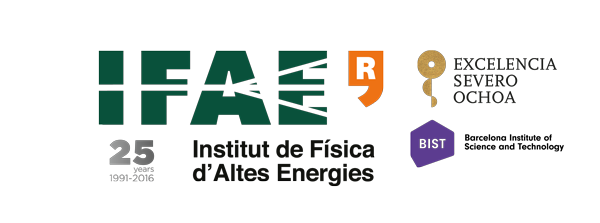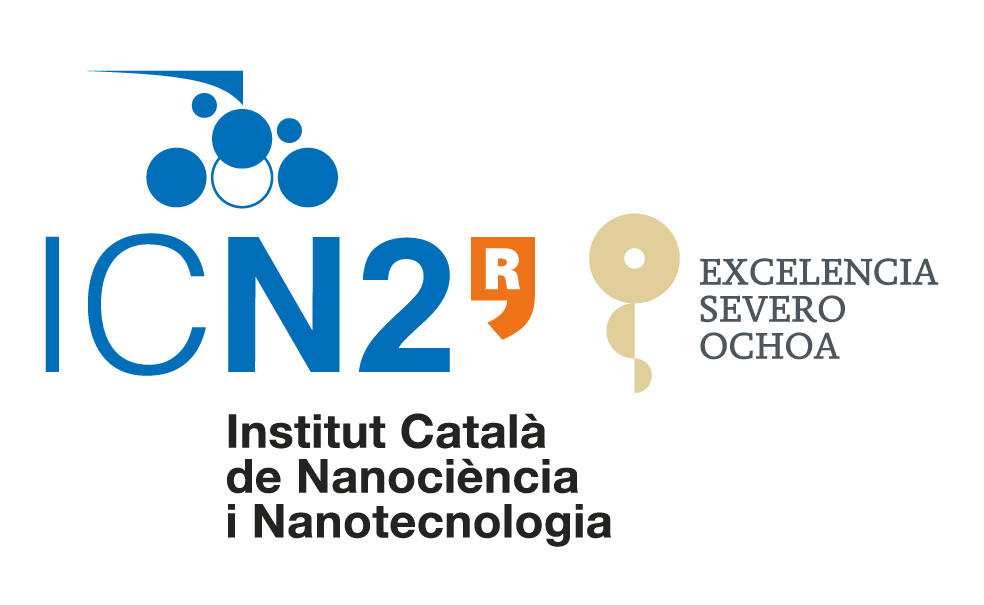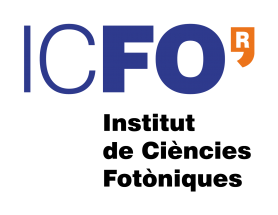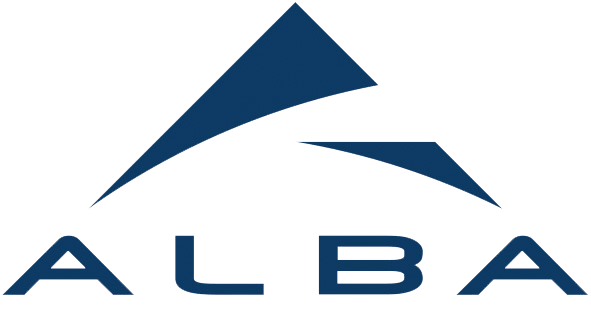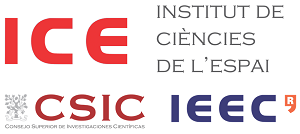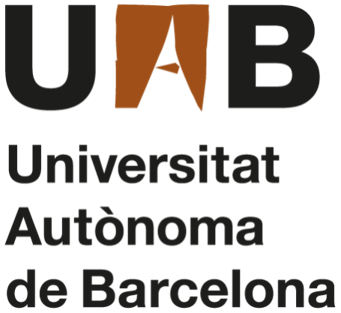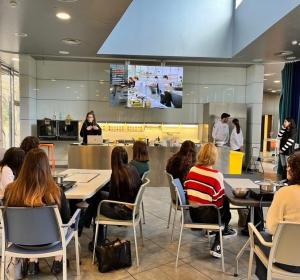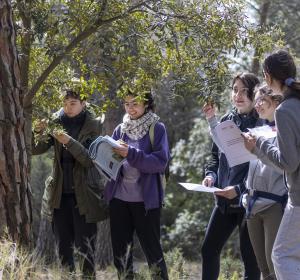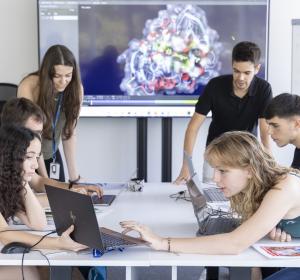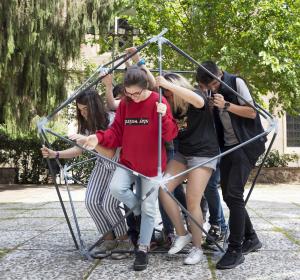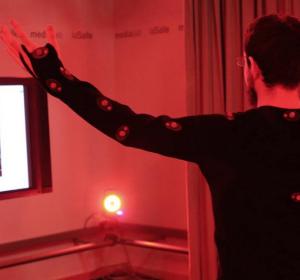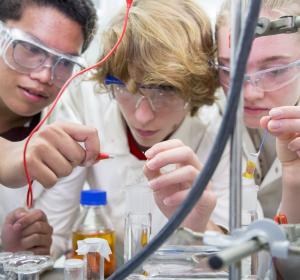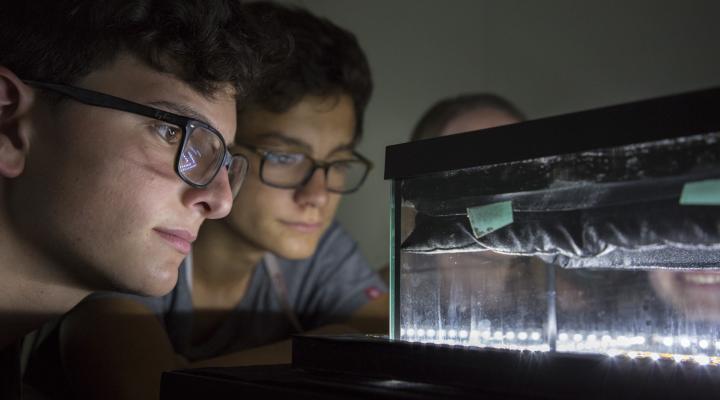
Physics
The course
The Physics course of the Mad for Science programme of the Catalunya La Pedrera Foundation is a course developed jointly by the Institute of High Energy Physics (IFAE) and the Catalan Institute of Nanoscience and Nanotechnology (ICN2), aimed at 1st year A-Level students with a special interest and talent in physics. The basic purpose of this course is to foster the scientific vocation of these young people and especially their enthusiasm for physics. In some of the sessions students may come up with ideas and proposals for their A-Level Research Project that they will be able to carry out, as the case may be, with the support of the course faculty.
What does it mean to do research in physics? Not only is there an answer, but in the Physics course from the Mad for Science programme, we will see a whole series of projects that are at the border of research and thus we will understand what day-to-day research for a physicist is like. Studying the structure of the universe and the structure of matter, understanding quantum physics and putting them at the service of communications, developing sensors with new materials and fabricating detectors that are used in particle accelerators, analysing nature chaos processes and learning to master light and finding new applications.
The work of researchers in physics ranges from the smallest to the largest, from particles to atoms and to the entire cosmos. In this course we will be able to experience these various branches of physics and thus get a closer idea of what this research really looks like. And let's not forget about technology. Experimental and applied physics are closely linked to the development of new technologies that not only serve to study in detail what surrounds us, but also to advance society.
In this course you will find topics we know that interest you: quantum, cosmology, matter, particles... You will see the greatest scientific experiments and the most innovative applications. But one thing we want you to learn with this programme is to start thinking like a physicist. Because you will see that each and every one of us - in the theoretical and experimental, applied or fundamental - does very different things, but there is one thing that unites us: we all want to explain what surrounds us from simple principles. This is what defines a person who is really mad for physics.
The course will cover the following areas:
- Particle Physics
- Nanotechnology
- Photonics
- Cosmology
- Astrophysics
- Materials Science
- Astronomy
Specific objectives
Complements the academic studies
Promoting among young people the scientific vocations linked to the world of physics, taking into account different areas of application and research, while helping to guide their academic and professional future.
Research environment
Disseminating the research in frontier physics in research centres and universities in Catalonia.
Understanding the operation of research centres linked to Physics, a discipline that is much more diverse than what young students suspect.
Sessions 2025
Dia: dissabte 25 de gener, 2025.
Horari: 9h a 14h.
Lloc: IFAE.
Sessió a càrrec de: Grup de ATLAS de I'Institut de Física d'Altes Energies (IFAE).
En aquesta sessió descobrirem el món dels Quarks i els Leptons amb dades de debò aconseguides al detector ATLAS de LHC, l’accelerador de partícules més gran del món. Després d’una introducció a la recerca bàsica que es fa per estudiar les forces i partícules fonamentals de l’anomenat model estàndard, ens endinsarem en els mètodes que fan servir els investigadors: l’anàlisi de dades i les simulacions de les col·lisions d’hadrons.
Dia: dissabte 1 de febrer, 2025.
Horari: 9h a 14h.
Lloc: ICN2.
Sessió a càrrec de: Institut Català de Nanociència i Nanotecnologia (ICN2).
L'electró és una partícula subatòmica amb una càrrega elèctrica elemental negativa. Sense els microscopis electrònics no podríem veure els nanomaterials què estem fent a l'ICN2. L'escala a la qual treballem a l'ICN2 fa dels microscopis electrònics l'única eina que ens permet veure nanomaterials per conèixer més sobre la seva estructura i caracteritzar morfològica, estructural i químicament les mostres amb les quals treballem.
Aquesta sessió té com a finalitat la producció, caracterització i posterior observació mitjançant tècniques de microscòpia electrònica de diferents materials nanoestructurats, principalment nanopartícules metàl·liques. Si voleu fer nanotecnologia, heu de dominar el seu ús o conèixer a personal especialitzat com el que conduirà aquesta sessió.
Dia: dissabte 22 de febrer, 2025.
Horari: 9h a 14h.
Lloc: Universitat Autònoma de Barcelona (UAB).
Sessió a càrrec de: Institut de Física d'Altes Energies (IFAE).
Dia: dissabte 1 de març, 2025.
Horari: 9h a 14h.
Lloc: Institut Català de Nanociència i Nanotecnologia (ICN2).
Sessió a càrrec de: Institut Català de Nanociència i Nanotecnologia (ICN2).
El paper és un material fet de cel·lulosa, el polimer més abundant a la Terra. Llavors, per què no aprofitar aquest material per fer sensors de low-cost? En aquesta sessió coneixerem els principis físics i químics que permetran dissenyar sensors senzills i eficients en paper, així com la relació que hi ha entre aquest material i la nanotecnologia.
Dia: dissabte 8 de març, 2025.
Horari: 9h a 14h.
Lloc: Institut de Ciències Fotòniques (ICFO).
Sessió a càrrec de: Institut de Ciències Fotòniques (ICFO).
Què tenen en comú una fibra òptica, una cotxe autònom, una placa solar i un pulsioxímetre (un dels clips que posen els metges als nostres dits quan volen saber quant oxigen tenim a la sang)? Tots funcionen gràcies a la fotònica, la ciència i la tecnologia de la llum!
A l'ICFO fer servir els fotons com eines valuoses i versàtils per entendre millor el nostre món i trobar solucions a problemes globals en camps diferents com la salut, l'energia i la informació.
En aquesta activitat dinàmica e interactiva, treballareu per grups per descobrir el potencial de la fotònica, comentant experiments i discutint sobre les aplicacions de la fotònica i els últims avenços en aquests camps.
Dia: dissabte 22 de març, 2025.
Horari: 9h a 14h.
Lloc: Institut de Física d'Altes Energies (IFAE).
Sessió a càrrec de: Institut de Física d'Altes Energies (IFAE).
Dia: dissabte 29 de març, 2025.
Horari: 9h a 14h.
Lloc: Institut Català de Nanociència i Nanotecnologia (ICN2).
Sessió a càrrec de: Institut Català de Nanociència i Nanotecnologia (ICN2).
Aquesta sessió té com a objectiu mostrar les etapes de la fabricació i medició dels nanodispositius i explicar la connexió entre les seves propietats elèctriques i les seves aplicacions en la electrònica. Per això explicarem els desafiaments de l’electrònica moderna i els connectarem amb les tecnologies de fabricació i medició en els nostres laboratoris, explicant com utilitzem les nostres mesures per a discernir entre els possibles materials que, en un futur, es podrien convertir en la base de noves tecnologies.
La pràctica té dos components:
- Sessió experimental: Com fabricar i mesurar els nanodispositius.
- Sessió teòrica: Com modelar la resposta elèctrica d’aquests materials i observar com el comportament d’aquests canvia d’acord a la seva dimensió, en passar de macro a nano.
Dia: dissabte 5 d'abril, 2025.
Horari: 9h a 14h.
Lloc: Institut de Física d'Altes Energies (IFAE).
Sessió a càrrec de: Institut de Física d'Altes Energies (IFAE).
Dia: dissabte 26 d'abril, 2025.
Horari: Per determinar.
Lloc: Sincrotró ALBA.
Sessió a càrrec: Sincrotró ALBA.
La font de llum del Sincrotró ALBA és la instal·lació científica singular més important del sud-oest d'Europa. ALBA funciona com un microscopi gegant que permet descobrir estructures de la matèria a escala atòmica i molecular. Les propietats de la llum que genera li permeten penetrar en la matèria de manera extremament selectiva, en àmbits com la física, la química, la biomedicina, el patrimoni cultural, medi ambient, etc.
Dia: dissabte 3 de maig, 2025.
Horari: 9h a 14h.
Lloc: Institut Català de Nanociència i Nanotecnologia (ICN2).
Sessió a càrrec de: Institut Català de Nanociència i Nanotecnologia (ICN2).
Una de les moltes propietats sorprenents de l’aigua líquida és la seva elevada tensió superficial, la qual possibilita la formació de gotes. Aquestes gotes són estables a les humitats relatives habituals (30-40%), desafien la força de la gravetat i, en la seva absència, poden assolir grandàries considerables tal i com ens ho mostren sovint els astronautes de l’Estació Espacial Internacional.
L’alta tensió superficial de l’aigua es fonamenta en l’enllaç de pont d’hidrogen. Quan les gotes interactuen amb superfícies, podem arribar a tenir dues situacions radicalment oposades: les gotes cobreixen la superfície (hidrofilicitat) o són rebutjades per la superfície (hidrofobicitat). En aquest darrer cas les gotes reboten elàsticament formant ondulacions espectaculars. El caràcter hidrofílic o hidrofòbic es pot controlar modificant les superfícies. Superfícies no hidrofòbiques passen a ser hidrofòbiques quan som capaços de crear artificialment estructures micro/nanomètriques. Aquesta habilitat de controlar la interacció de l’aigua amb superfícies ja ha trobat aplicacions en camps tant diversos com la construcció, l’òptica, els teixits, etc.
Dia: dissabte 17 de maig, 2025.
Horari: De 9h a 14h.
Lloc: Institut de Física d'Altes Energies (IFAE).
Sessió a càrrec de: Institut de Física d'Altes Energies (IFAE).
La computació quàntica utilitza una nova lògica basada en les lleis de la física quàntica per resoldre problemes que no són possibles de solucionar amb la computació clàssica. En aquesta sessió introduirem els conceptes bàsics de la física quàntica i com aquests s'empren en una nova manera de codificar i manipular la informació. Finalment explicarem com funciona un ordinador quàntic basat en circuits superconductors.
Dia: dissabte 24 de maig, 2025.
Horari: 9h a 14h.
Lloc: Institut de Ciència de Materials de Barcelona (ICMAB-CSIC).
Sessió a càrrec de: Institut de Ciència de Materials de Barcelona (ICMAB-CSIC).
L'entusiasme i l'elevat nivell d'especialització de gran part dels investigadors sovint provoca que la recerca en nous materials es focalitzi en invencions d'alt interès científic, però de difícil aplicació al nostre dia a dia.
Tanmateix, existeixen casos en els quals l'esforç en la recerca ha resultat en productes que fàcilment podrien formar part de la nostra vida quotidiana.
Què passa si aquest esforç el fan investigadors catalans? I si ho fan en col·laboració amb una empresa catalana? En aquesta sessió veurem alguns d'aquests (nano)materials, que podran ser utilitzats en un futur en algunes aplicacions que ni t'imagines que podien existir!
En la primera part de la sessió veurem com interaccionen els imants amb les ones electromagnètiques. En relació amb aquests conceptes us presentarem la recerca que fem per desenvolupar nous materials que serveixin per a les noves comunicacions sense fil a molt alta freqüència i en memòries de molt alta densitat. A la segona part de la sessió, veurem com produir o transformar materials amb diferents tècniques làser. Els nostres objectius inclouen desenvolupar nanomaterials per a aplicacions com l'emmagatzematge d'energia (supercondensadors) o catalitzadors per a la producció d'hidrogen. No t'ho perdis!
Dia: dissabte 7 de juny, 2025.
Horari: 9h a 14h.
Lloc: Universitat Autònoma de Barcelona (UAB).
Sessió a càrrec de: Universitat Autònoma de Barcelona (UAB).
Dia: dissabte 21 de juny, 2025.
Horari: 9h a 14h.
Lloc: Institut de Física d'Altes Energies (IFAE).
Sessió a càrrec de: Institut de Física d'Altes Energies (IFAE).
